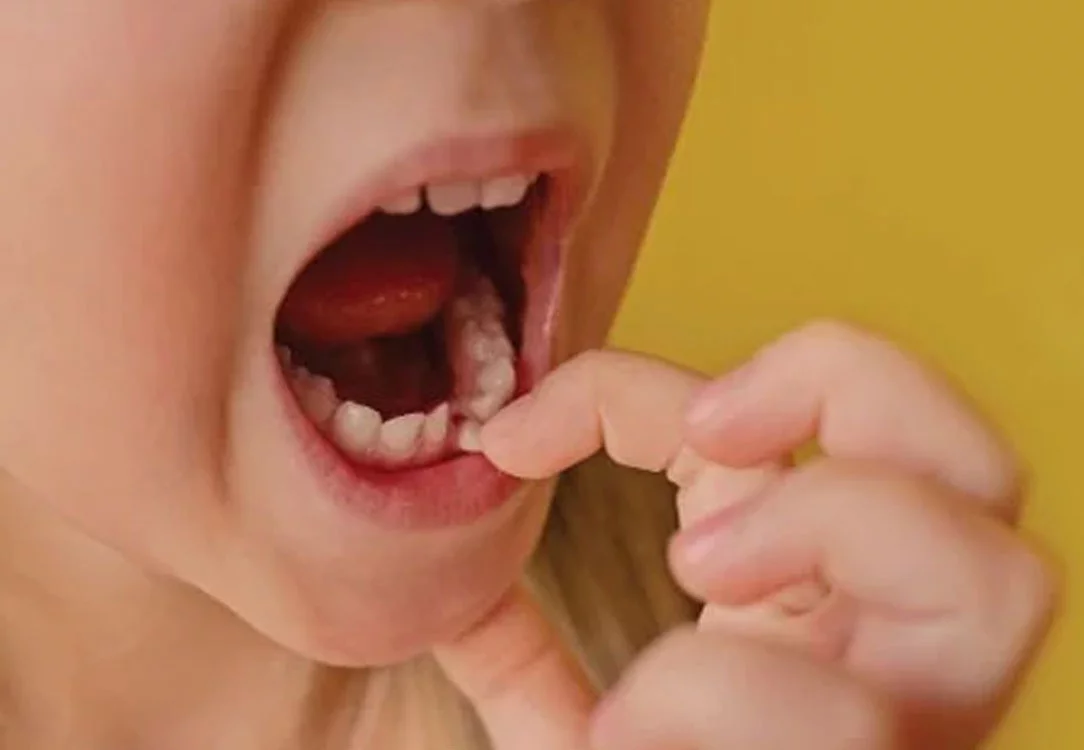As your baby begins to teethe, the health of those new teeth rests on your shoulders. Teaching your child good oral health habits by showing them how to brush, when to brush, and talking about foods and drinks that could damage their teeth is crucial to giving your child a lifetime of healthy teeth.
Unfortunately, even with the best daily oral care, your child’s teeth may become damaged in an accident. Baby teeth can be knocked out, broken, or even half of a baby tooth can fall out. Knowing what to do in an emergency situation when your child’s baby tooth is loose, but still attached, will help you to possibly save their tooth and ensure their permanent teeth do not get damaged in the process.
How Long Does It Take For a Baby Tooth to Reattach?
Key Things to Know:
A baby tooth loosened by trauma may reattach in 3 to 8 weeks.
If the tooth's pulp is damaged, reattachment isn’t possible and dental treatment is needed.
As with adult teeth, a tooth that has become loose from trauma can begin to reattach itself over a three to four-week period. Though sometimes, it can take as much as eight weeks to fully attach. If the pulp, or the innermost layer of the tooth, has become damaged and blood is not circulating through the tooth, the tooth can not reattach and a dentist will need to perform a root canal to prevent infection.
How Does a Baby Tooth Become Loose?
Key Things to Know:
Baby teeth usually don’t reattach if they’re loose naturally
Falls or bumps can loosen a healthy baby tooth prematurely
Primary teeth, also referred to as baby teeth, can become loose naturally as your child's mouth become ready for their permanent teeth, But sometimes, baby teeth are loosened even when they aren’t ready to fall out naturally. Blunt trauma to the mouth or even gum disease can make a seemingly healthy tooth become loose. Some kids are all about rough and tumble play. They may slam their teeth into something hard while trying to jump or climb from one place to another. Other children can accidentally trip, hitting their mouths on a table corner or against the door frame, causing their teeth to become loose. [1]

Can a Dead Baby Tooth be Saved?
Key Things to Know:
A dead baby tooth can’t always be saved, but treatment may allow it to stay in place to prevent speech or alignment issues.
Teeth that are only slightly loosened may reattach naturally if the pulp isn’t damaged and the mouth is healthy.
If your child has a dead baby tooth, you may be worried about what problems this could mean for your child’s permanent tooth that will come in as your child gets older. If the tooth died because of a cavity due to poor oral hygiene, a dentist will likely pull it, put a crown over it, or perform a root canal procedure to avoid causing other teeth near the cavity to also suffer from decay. If a baby tooth is dead, it can not necessarily be saved, but it can stay in the mouth to avoid any movement of other teeth or speech issues as long as the damage or decay is properly treated and evaluated by a dentist.
What is a dead tooth?
Why is my child’s tooth changing color?
What will the dentist recommend if my child's tooth becomes infected?
Cavities, which are most common in children, occur when the sticky film called plaque is not properly cleaned off of the teeth. Sugars from foods stick to the plaque and allow bacteria to convert it into a type of acid that eventually wears down a spot on the tooth, causing a hole to develop and allowing more bacteria to get into the softer layers of the tooth.

What Is a Root Canal?
A root canal treatment can be performed on a baby tooth because keeping the tooth in position will make sure no other teeth are negatively affected while taking out the infected pulp will prevent an infection from worsening.
- Enamel: the hard outer layer of the tooth
- Dentin: the slightly softer middle layer of the tooth
- Pulp: the soft inner layer of the tooth that is alive
Can Baby Teeth Get Pushed Back In?
Key Things to Know:
Never push a knocked-out baby tooth back into the socket—even if the root is attached.
Reinserting a baby tooth can harm the developing permanent tooth and lead to infection.
Baby teeth should NOT be pushed back into place if they are knocked out with the root still attached. If you were to have one of your permanent teeth knocked out by accident, which happens over five million times every year around the world, it is possible to save your tooth by:
- Finding your tooth
- Carefully rinsing it with cold water without ever touching the root
- Placing it back in the open socket within 30 minutes after the tooth left your mouth
Find a Dentist in Your Community
Whether your child needs a tooth to be evaluated by a dentist because they were recently hit in the mouth or has tooth decay that needs to be addressed, finding an experienced dentist in your community that sees pediatric patients is crucial to keeping your child’s mouth healthy. Let Smile Generation help you find the best dentist in your area through the Find a Dentist tool today.
Find your trusted, local dentist today!
Sources
- American Dental Association. (2022, September 8). Decay. Mouth Healthy. https://www.mouthhealthy.org/all-topics-a-z/tooth-decay. Reviewed April 16, 2025
- American Association of Endodontists. (2022, September 8). Knocked out teeth. https://www.aae.org/patients/dental-symptoms/knocked-out-teeth/. Reviewed April 16, 2025
- American Dental Association. (2022, September 8). Root canals: FAQs about treatment that can save your tooth. Mouth Healthy. https://www.mouthhealthy.org/all-topics-a-z/root-canals/. Reviewed April 16, 2025
Smile Generation blog articles are reviewed by a licensed dental professional before publishing. However, we present this information for educational purposes only with the intent to promote readers’ understanding of oral health and oral healthcare treatment options and technology. We do not intend for our blog content to substitute for professional dental care and clinical advice, diagnosis, or treatment planning provided by a licensed dental professional. Smile Generation always recommends seeking the advice of a dentist, physician, or other licensed healthcare professional for a dental or medical condition or treatment.









